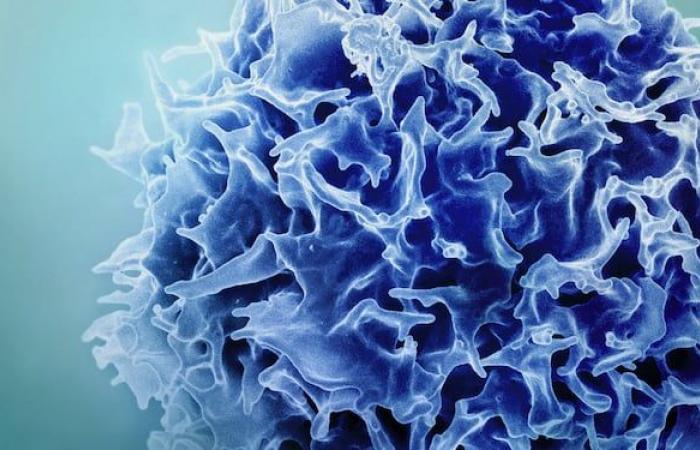The RNA vaccine against the COVVI-19 has many qualities, but it has a defect that has escaped anyone: the protection it gives is short-lived, hence the need for frequent reminders. A study published recently in the Journal of Allergy and Clinical Immunology By a research team from France and the Laval University suggests that this weak point of the vaccine could be due to a cascade of reactions which affect cells of the immune system, T lymphocytes.
“We believe that by blocking this cascade of reactions, one could improve immune memory and significantly prolong the duration of protection conferred by this vaccine,” says the study manager, Jérôme Estaquier, professor at the Faculty of Medicine ‘Laval University and researcher at the Quebec CHU Research Center – Laval University.
Recall that the COVVI-19 vaccine contains RNA which commands the production of a protein from the virus, the Spicule (s) protein, by human cells. “The body then sets up an immune response which will serve it to prevent the development of the disease when it is confronted with the virus,” said Professor Estaquier.
In a previous study, his team has shown that, in people with severe covid-19, a cascade of reactions started by the protein led to a weakening of the immune response linked to the death of T lymphocytes. “As the vaccine Until the production of the protein S by the organization, we wanted to know if the same cascade of reactions was present, at least temporarily, in people who are vaccinated, ”specifies the researcher.
The Franco-Québec team followed, for 28 days, 30 people who had just received a vaccine against the COVVI-19 in order to measure various parameters of their immune response. The data show that, as expected, protein production increases in the days following vaccination. It reaches a maximum of the 14th day and it disappears almost completely after 28 days.
“The increase in protein switches on the same cascade of reactions as that observed in people with COVID-19, summarizes Professor Estaquier. One of the stages of this stunt is the production of reactive derivatives of oxygen which damage the DNA of T lymphocytes. We believe that these damage could explain why the organism does not manage to set up a sustainable immune memory and why it Reminders must be made to maintain protection against the virus. ”
-“Much of the population does not want to be vaccinated every six months against COVID-19. If we want to maintain high vaccination rates, we must listen to the needs of the population and find ways to correct this problem. »»
— Jérôme Estaquier
Professor Estaquier’s team now intends to test this hypothesis by using an oxygen reactive derivative inhibitor, N-acetylcysteine, as a complement to vaccination. “It is an amino acid already used for different ends in humans. We will administer it orally to people who have just received the vaccine. This will allow us to assess its effectiveness to protect T lymphocytes and thus improve the protection time conferred by vaccination. ”
The COVVI-19 vaccine is a very good vaccine, insists Professor Estaquier, but the short protection duration he gives is an important drawback. “Much of the population does not want to be vaccinated every six months against COVID-19. If we want to maintain high vaccination rates, we must listen to the needs of the population and find ways to correct this problem. ”
[ Branchez-vous sur l’actualité de l’Université Laval! ]






